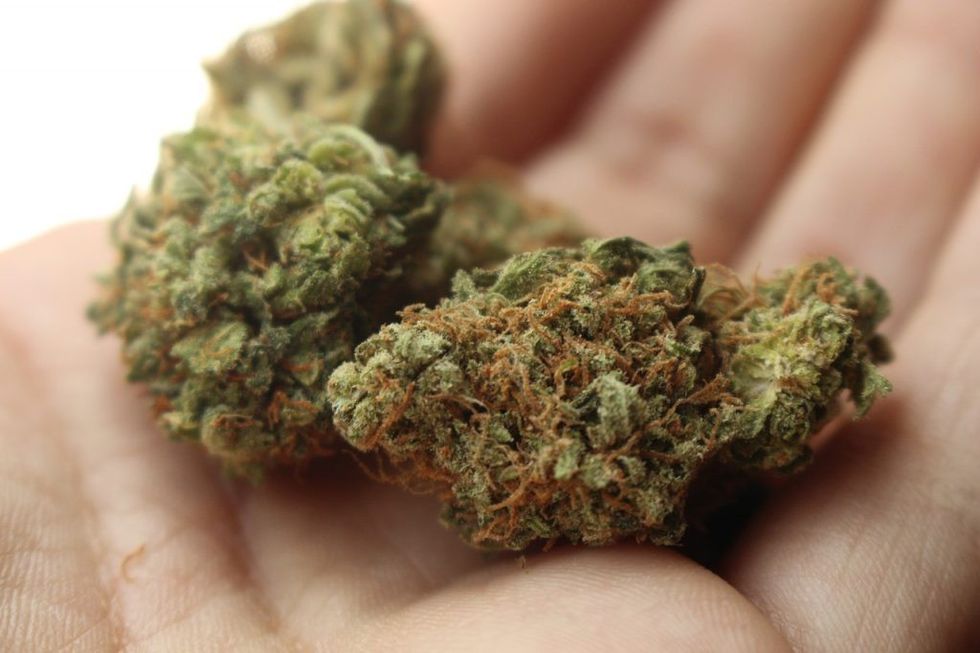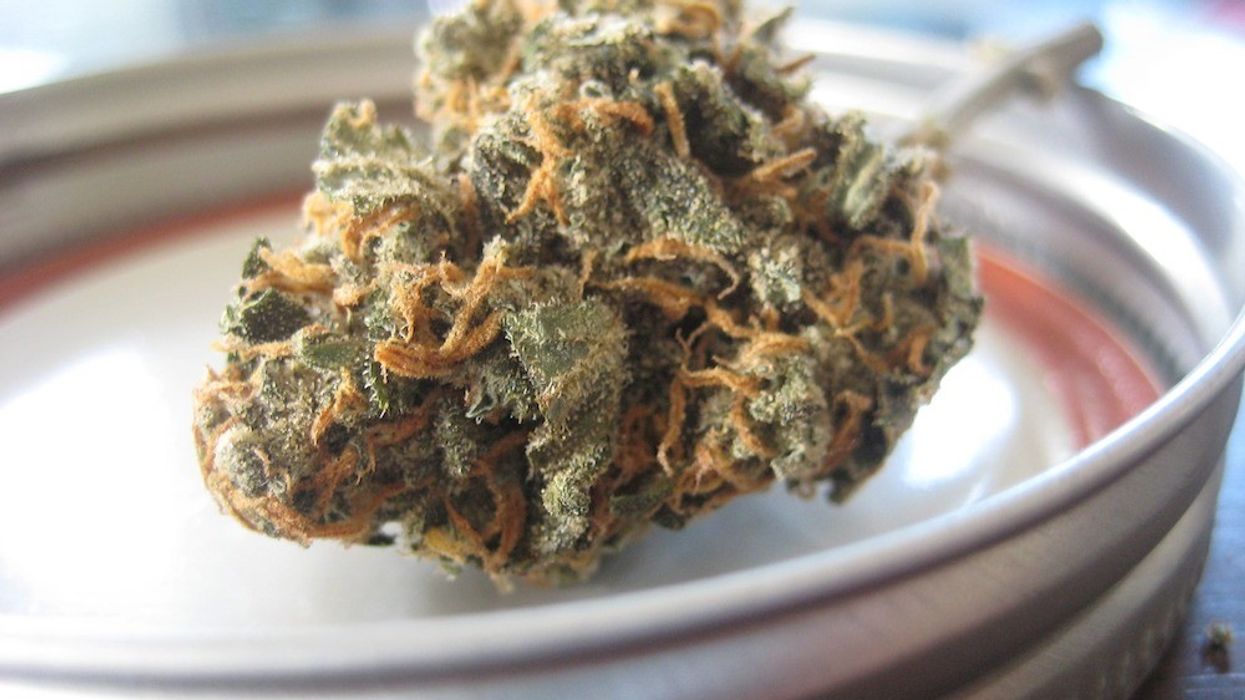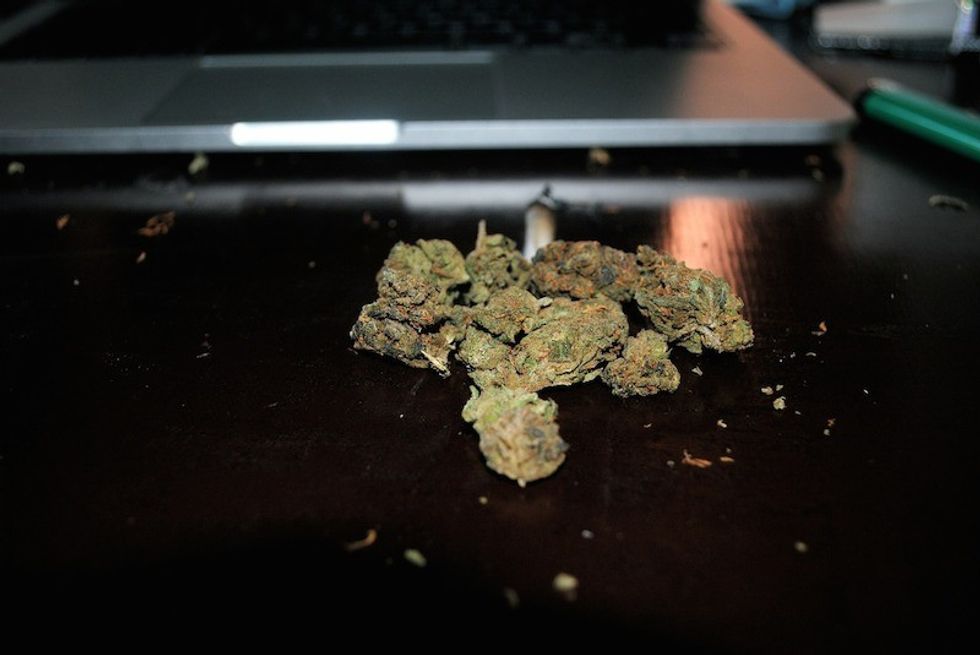Now that cannabis is (finally) legal in Canada – with the stigma eroding with each new, and once unlikely, user – we’ve become accustomed catching whiffs of it everywhere, from city parks to suburban backyards.
While the stoner set may find comfort in the pungent aroma of a freshly rolled joint, a lot of people don’t – plus, it’s a dead giveaway as to your recreational activities/vice of choice, something not everyone’s comfortable with.
A common concern is that the impossible-to-ignore aroma of a blazing or just-blazed joint is an offensive one to some people – and a smell neighbours may not want to explain to their young kids.
If you’re going to smoke in your home but are trying to be discreet and are concerned about the smoke smell, you may want to restrict your smoking to one room that has windows that can open, and consider placing a towel under the door so that minimal smoke escapes. If you live in a house with multiple floors, try to avoid smoking in the basement, as the smoke will drift up throughout the house (completely blowing your cover). On the top floor, on the other hand, it gathers around the ceiling of that room.

Cannabis experts point to the fact that cannabis accessories – bongs, pipes, and ashtrays – can harbour that stale weed smell more than anything. So, make sure you keep your stoner swag fresh and clean. Essential oils, candles, and natural sprays can also get rid of the weed smell (burnt popcorn helps too, in desperate times).
If you’d rather not risk your living space smelling like weed at all, there are other more discreet ways to consume cannabis that don’t produce the smoke and the smell, like vaporizers and edibles. “Vaping” involves applying heat to a liquid that creates a vapour and is commonly used to consume cannabis. Unlike smoke, vapour dissipates within minutes.
When it comes to edibles, there are two things to keep in mind. First of all, if you’re a newbie, start small (just, trust us). Secondly, remember than if you’re going to bake your own – say a fresh batch of chocolate chip cookies or banana bread – your home could smell like weed in the cooking process. You’ll definitely want to have the vent on.
If you’re a renter, you need to be more cautious about your cannabis consumption. It didn’t take long after the long-awaited legalization of cannabis in Canada for many condo boards and landlords to amend their building’s by-laws to become completely smoke-free – of both cigarette smoke and weed smoke. For many, this means no smoking anywhere, even on balconies and in outdoor common areas.
Are there ways around this? Well, yes (…but you didn’t hear it from us...see above).
While some view marijuana in the home as no big deal, a survey by real estate website Zoocasa revealed that 64% of Canadian homeowners believe smoking cannabis indoors will decrease the value of their home. But odour and potential health impacts aside, when it comes to the home is marijuana really damaging to furniture, carpets, and walls the way cigarette smoke is? Is there a lingering residual odour or damage that lasts long-term?
While the cannabis scent is undoubtedly strong, few people would argue that it sticks around with the same intensity as tobacco smoke. Years of cigarette smoke in a house or apartment unit can render it a giant ashtray indefinitely scent-wise, and ridding a home of long-term cigarette smoke often requires pulling out the carpets and even sealing and repainting stained walls.
While many believe that weed dissipates within a few hours and doesn’t cling to certain fabrics (i.e. your couch or your duvet) or stain the walls like the chemical-filled cigarette smoke does, others aren’t convinced. Many landlords and Airbnb hosts will charge a cleaning fee if the smell of cannabis (or tobacco) is detected indoors. The subsequent cleaning could involve wiping down walls with vinegar, laundering cushions, and airing out the place.
While marijuana smoke may not have a detrimental impact on your home, growing cannabis most definitely can – especially if you’re sloppy about it. If not maintained properly, growing can damage living spaces with mold, humidity, and moisture. So, if you’re a renter, you probably want to cultivate your cannabis elsewhere.
For the casual joint smoker or bong toker, a good few hours, open windows, and a little ventilation usually hides all evidence – so you’re good in the event of a visit from the landlord or in-laws the next morning.






















